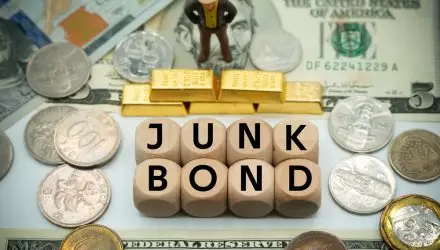High yield corporate debt slipped last year as Treasury yields spiked amid the Federal Reserve’s rising rates regime. This year, there’s concern that a recession will weigh on the junk bond space, potentially creating a wave of defaults.
However, some bond market observers believe that a recent narrowing in credit spreads coupled with hopes that even if a recession arrives it will be brief could indicate that the time is right to nibble at high yield debt. That could be good news for exchange traded funds such as the IQ MacKay ESG High Income ETF (NYSE Arca: IQHI).
IQHI, which debuted last October, is unique on multiple fronts, not the least of which is the fact that it combines junk bonds with an environmental, social, and governance (ESG) overlay. Plus, IQHI could be a well-timed addition to the junk bond ETF fray.
“Six new junk bonds have been sold for $4.725 billion so far this month, compared to just three for $2.12 billion in the whole of December, according to Informa data, reflecting the reopening of a junk bond primary market that saw declining new issue volumes towards the end of 2022,” reported Reuters.
Still, at least for the early innings of 2023, IQHI could be tested by investors’ expectations regarding if and when the Fed will halt rate hikes or even consider rate reductions.
No products found.
“Money markets expect the U.S. central bank to start cutting rates towards the end of the year, betting on a sharp economic slowdown and a decline in inflation. Fed officials, however, forecast interest rates to remain high for the whole of this year, with the central bank’s target policy rate remaining just over 5% until the end of 2023,” noted Reuters.
IQHI offers income investors the added benefit of being actively managed. That management style not only ensures that IQHI is holding bonds that credibly warrant the ESG label, but it also implies that the fund’s managers can more swiftly react to credit and rate risk scenarios. On a related note, IQHI has an effective duration of 4.19 years, which is lower than some of the competing passive funds in the high yield corporate bond category.
Another point to consider regarding IQHI’s status as an actively managed ETF is that bond prices could be volatile over the coming months as market participants price in expectations for global monetary policy. That could give the fund’s managers opportunity to take advantage of valuation opportunities.
For more news, information, and analysis, visit the Dual Impact Channel.
No products found.
The opinions and forecasts expressed herein are solely those of Tom Lydon, and may not actually come to pass. Information on this site should not be used or construed as an offer to sell, a solicitation of an offer to buy, or a recommendation for any product.

